Is a Truly Interfaith Ceremony Possible for Us?
This blog post is based on the show notes for Episode 009 of Your Jewish Wedding Podcast.
Today, we're diving into the wonderful world of interfaith wedding ceremonies, where the motto is all about embracing, connecting, and welcoming. So, do I allow elements of other faiths and cultures in my ceremonies? The short answer: YES. But let's unpack this a bit, shall we?
Gone are the days when wedding ceremonies were one-size-fits-all affairs. You know, the kind where you'd find a rabbi or priest or judge to officiate your wedding, and you pretty much got the wedding they wanted to give you. There was this notion that wedding ceremonies were standard, like 'the Jewish wedding' was some monolithic event you could learn about in a short book. But guess what? There's never been just one way to do a Jewish wedding, and there's certainly not one way now.
Sure, we've had our trusty guides like 'The New Jewish Wedding,' and Anita Diamant's pearls of wisdom, (which were ASTOUNDINGLY helpful for her time) but especially in the pre-internet era, exploring other traditions meant hitting the library or just gathering all your knowledge from your life experiences. People just didn't ask for custom ceremonies back then, aside from maybe including a personalized reading or two.
Fast forward to today, and personalization is the norm. Today’s couples expect every detail to reflect them and their relationship - which is exactly how it should be. I'm all for it. If there's one aspect of your wedding that should be 100% personalized, it's your ceremony. It's about YOUR story, YOUR promises, and what matters to YOU.
Now, you might be marrying someone who comes from a different faith or background, and that's beautiful. But it's crucial to have those deep conversations about your cultural and religious differences. Premarital counseling can be a game-changer, especially for interfaith couples. It helps you 'see around corners' and understand how both of your faiths and cultures can coexist harmoniously.
Your marriage is a blend of both of you. If you both want the ceremony to reflect your respective traditions, that's amazing. But if you're hesitant to make the ceremony a beautiful fusion of both, there's some internal work to be done. If there’s something that is preventing you from expressing each other's faith and culture, there may be some internal work required to determine if both of you are truly accepting of one another.
Let's talk about a fantastic couple I know. They had those profound conversations about their interfaith household , because each of them was DEEPLY faithful - one to Judaism, one to Christianity. They wanted their ceremony to be a reflection of their journey, a truly equal one, and the experience of working through and creating that ceremony made them a stronger couple, and made their Jewish/Christian interfaith ceremony SUPER meaningful.
I encourage my couples to think this way: Your ceremony isn't just a formality; it's also a conversation starter. Take, for example, the Catholic wedding ceremony. It raises questions about whether both people in the couple are willing to bring up their children according to the law of Christ and the Church. This can be a sticking point for some, especially if you've grown up with different backgrounds.
Here's the thing; a lot of Jewish people of this generation grew up hearing about how interfaith marriage could erase Jewish heritage. So when they're asked to participate in a different faith even if it’s alongside their own, it can be a viscerally negative experience. That feeling, that reaction, is real.
All that said, I have been privileged to witness and contribute to ceremonies that beautifully blended different faiths and cultures. Each wedding ceremony marks the creation of a new, unique household. The creation of an interfaith ceremony? It's a testament to the power of love and understanding.
So, do I co-officiate? No, I don't. But I do invite clergy from other faiths to offer readings, prayers, or blessings as part of the ceremonies I officiate. Similarly, I am happy to offer Jewish components to enhance ceremonies led by other clergy. (Message me if you have questions about this. I promise, I don’t judge or lecture.)
Sure, for something like a Catholic-Jewish wedding, there are unique challenges, especially when it comes to the Catholic Sacrament of Marriage. Certain requirements must be met. But there are always options. It might take some research, finding the right priest, or an amenable deacon, and getting creative, but it can be done.
Your Jewish interfaith wedding ceremony is a beautiful opportunity to show your families and one another that it’s possible reflect both of your faith traditions without making anyone uncomfortable.

